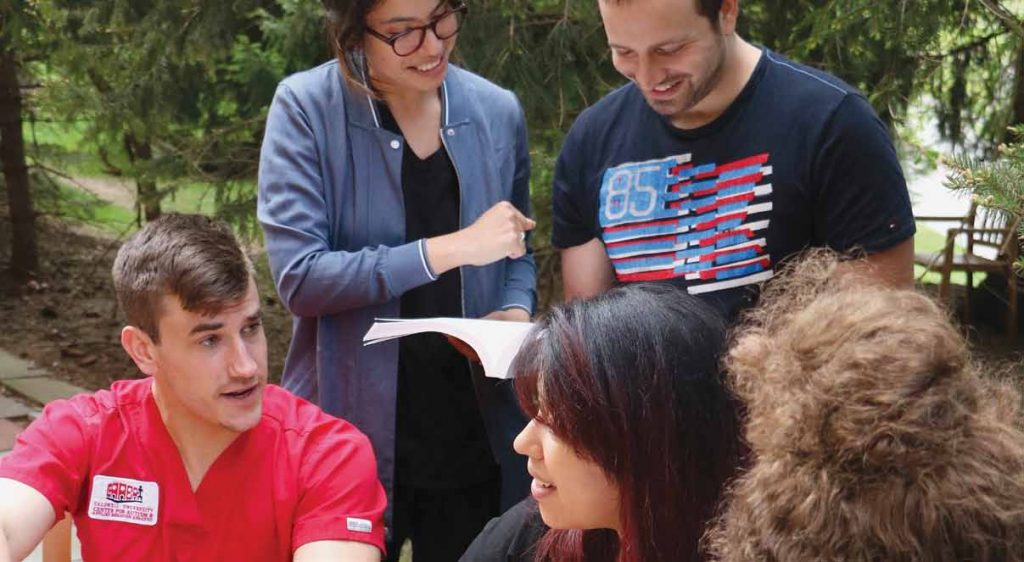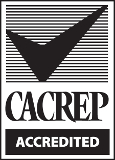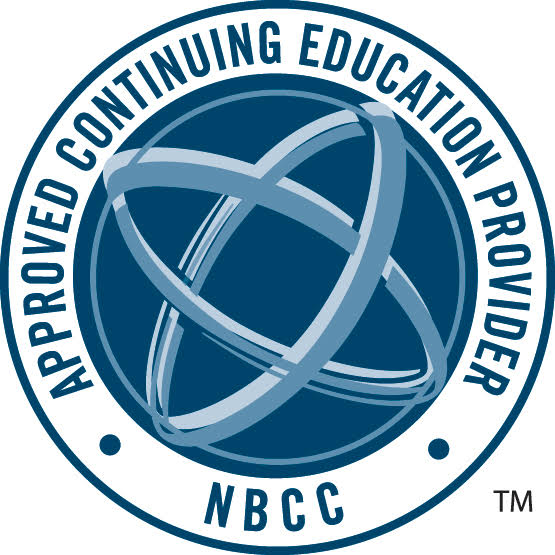Graduate Programs in Counseling

Caldwell’s graduate programs in Counseling are located in the School of Psychology and Counseling. (Clinical Mental Health Counseling with Art Therapy Specialization, Clinical Mental Health Counseling, and School Counseling) The programs prepare students to work effectively in a variety of settings. The three specialization areas share a number of core courses and provide specialized education in their unique focused areas as well. A central component of Caldwell University’s programs is the integration of spirituality, enabling students to incorporate this important dimension in concert with conventional practices.
All three of Caldwell University’s Graduate Programs in Counseling have received accreditation from The Council for Accreditation of Counseling and Related Education Programs (CACREP). The clinical mental health counseling program with art therapy specialization is also accredited by Commission on Accreditation for Allied Health and Educational Programs (CAAHEP).

Graduate Programs in Counseling, School of Psychology and Counseling
- M.A. in Counseling
- Combined Degree Programs: B.S. in Psychology/M.A. in Counseling
- Post-Graduate M.A. in Art Therapy
- Post-Master Director of School Counseling Services Program
- Post-Master Professional Counselor Licensing Program
- Post-Master School Counseling Specialization
Additional objectives are set based on specialization.
CLINICAL MENTAL HEALTH SPECIALIZATION
Coordinator: Dr. Emma Kendrick
Specialization faculty:
Dr. Lauren Clark PhD, LPC, NCC
According to the US Bureau of Labor Statistics:
- Employment of mental health counselors is projected to grow 20 percent from 2014 to 2024, much faster than the average for all occupations.
- Job prospects are expected to be good for mental health counselors and marriage and family therapists, particularly in rural areas or other communities that are under served by mental health practitioners.
- In addition, the number of military veterans needing and seeking mental health treatment is expected to increase over the next decade. The federal government, community clinics, and local hospitals will need to expand their mental health counseling staff to provide timely and effective treatment for veterans and active duty personnel.
- The federal health care reform requires insurance plans to cover treatment for mental health issues in the same way as other chronic diseases. This will give more people access to mental health care as a result.
Professional Organizations:
SCHOOL COUNSELING SPECIALIZATION
Coordinator: Dr. Emma Kendrick
Specialization faculty:
Dr. Stacey Solomon
According to the American School Counselor Association:
Professional school counselors are certified/licensed educators with a minimum of a master’s degree in school counseling making them uniquely qualified to address all students’ academic, personal/social and career development needs by designing, implementing, evaluating and enhancing a comprehensive school counseling program that promotes and enhances student success.
Professional Organizations:
- New Jersey School Counseling Association (NJSCA)
- American School Counseling Association (ASCA)
- Chi Sigma Iota (CSI)
CLINICAL MENTAL HEALTH COUNSELING WITH ART THERAPY SPECIALIZATION
Coordinator: Dr. Annette Vaccaro
Specialization faculty:
Dr. Daniel Summer, PhD, ATR-BC, LCAT, ATCS
The Master’s in Clinical Mental Health Counseling degree with art therapy specialization is a uniquely designed program that prepares you for a career as a clinical mental health counselor in a variety of human service settings. The specialization trains graduates to use the creative process to improve health and well-being.
This is the first CACREP accredited program of this type in the nation.
Professional Organizations
- New Jersey Counseling Association (NJCA)
- American Counseling Association (ACA)
- New Jersey Art Therapy Association (NJATA)
- American Art Therapy Association (AATA)
- Chi Sigma Iota (CSI)

Caldwell University has been approved by NBCC as an Approved Continuing Education Provider, ACEP No. 4598. Programs that do not qualify for NBCC credit are clearly identified. Caldwell University is solely responsible for all aspects of the programs.
Core Faculty:
- Dr. Emma Kendrick
- Dr. Annette Vaccaro
- Dr. Lauren Clark
- Dr. Stacey Solomon
- Dr. Dan Summer



